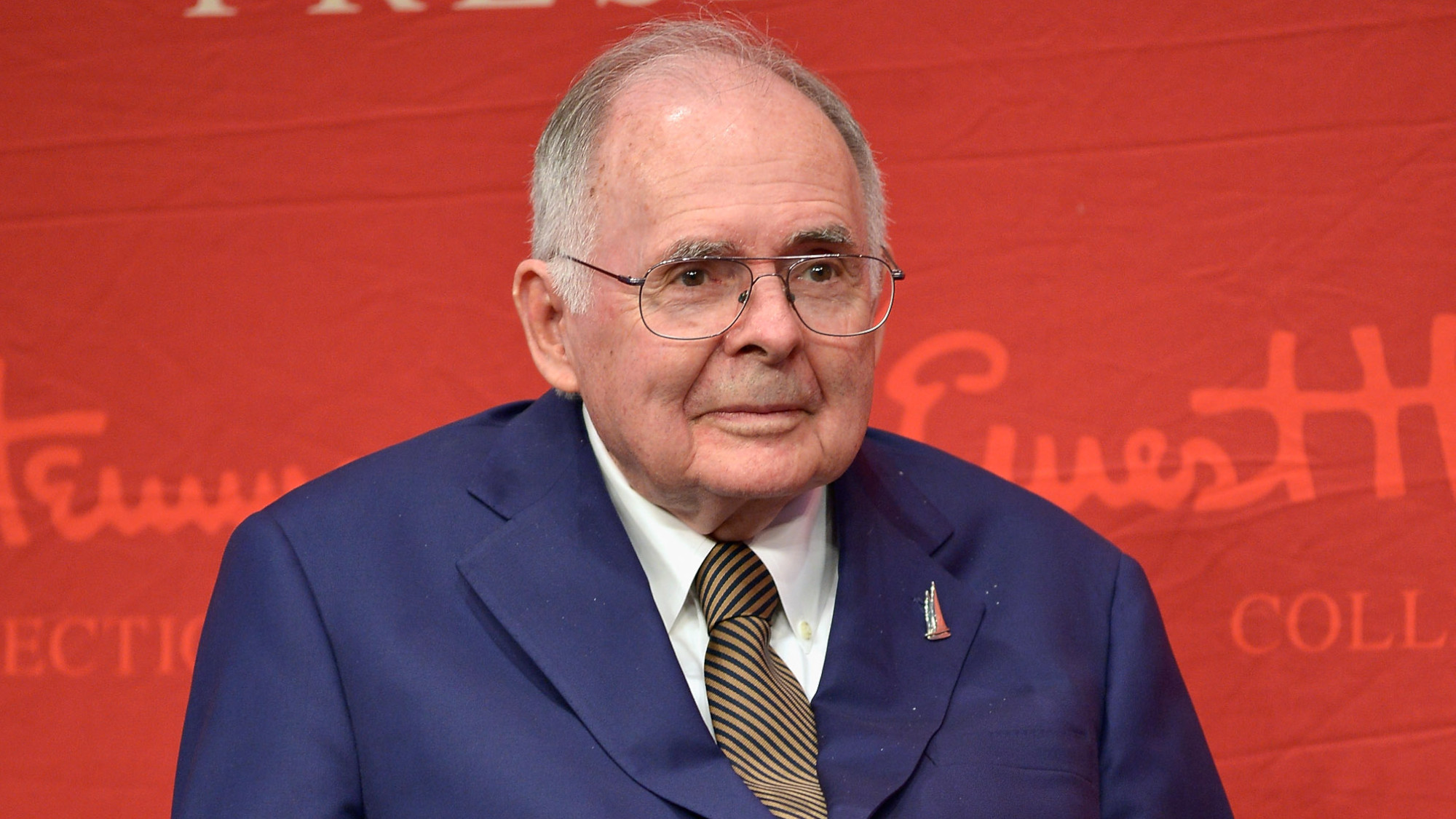Wilson Greatbatch, 1919–2011
The ‘tinkerer’ who invented the pacemaker
A free daily email with the biggest news stories of the day – and the best features from TheWeek.com
You are now subscribed
Your newsletter sign-up was successful
Wilson Greatbatch’s most famous invention came about entirely by accident. As an engineer at the University of Buffalo in 1956, the self-described “humble tinkerer” was building an oscillator to record heartbeats but unintentionally fitted it with the wrong-size resistor. The device gave off regular electrical pulses that Greatbatch theorized could stimulate the beating of the human heart—and so was born the implantable pacemaker, a medical device that has saved millions of lives.
Greatbatch was born in Buffalo, N.Y., the only child of an English construction contractor, said The New York Times. “Fascinated with radio technology” from a young age, Greatbatch joined the Navy and worked on shipboard communications during World War II. The “seeming randomness of death in wartime” inspired a deep religious faith within him.
Greatbatch’s pacemaker is still “considered one of medicine’s most significant achievements,” said The Washington Post. After his initial discovery, he quit his job to spend two years developing a workable prototype. In 1958, he wired a device “slightly larger than a hockey puck” to a dog’s heart, controlling its heartbeat “flawlessly.”
The Week
Escape your echo chamber. Get the facts behind the news, plus analysis from multiple perspectives.

Sign up for The Week's Free Newsletters
From our morning news briefing to a weekly Good News Newsletter, get the best of The Week delivered directly to your inbox.
From our morning news briefing to a weekly Good News Newsletter, get the best of The Week delivered directly to your inbox.
Greatbatch’s pacemaker was first implanted in a human in 1960, said the London Guardian, and kept its 77-year-old patient alive for 18 months. But its zinc-mercury batteries required changing every two years. Greatbatch spent the 1960s adapting a lithium-iodine battery, and “by 1972, his pacemakers lasted 10 years or more.”
The pacemaker made Greatbatch wealthy, said The Buffalo News, but this “quiet man” never rested on his laurels. He spent his final years “tinkering with new inventions,” from a genetically engineered cure for AIDS to a nuclear-powered spaceship. He invented a solar-powered canoe in 1991, and steered it 130 miles on one of New York’s Finger Lakes on his 72nd birthday.
Greatbatch taught into his later years, and inspired younger inventors with a simple message of humility and hard work. “Never avoid doing anything because you fear it won’t work,” he told students in 1990. “You should just do your work because it’s a good thing to do.”
A free daily email with the biggest news stories of the day – and the best features from TheWeek.com
-
 The ‘ravenous’ demand for Cornish minerals
The ‘ravenous’ demand for Cornish mineralsUnder the Radar Growing need for critical minerals to power tech has intensified ‘appetite’ for lithium, which could be a ‘huge boon’ for local economy
-
 Why are election experts taking Trump’s midterm threats seriously?
Why are election experts taking Trump’s midterm threats seriously?IN THE SPOTLIGHT As the president muses about polling place deployments and a centralized electoral system aimed at one-party control, lawmakers are taking this administration at its word
-
 ‘Restaurateurs have become millionaires’
‘Restaurateurs have become millionaires’Instant Opinion Opinion, comment and editorials of the day
-
 Catherine O'Hara: The madcap actress who sparkled on ‘SCTV’ and ‘Schitt’s Creek’
Catherine O'Hara: The madcap actress who sparkled on ‘SCTV’ and ‘Schitt’s Creek’Feature O'Hara cracked up audiences for more than 50 years
-
 Bob Weir: The Grateful Dead guitarist who kept the hippie flame
Bob Weir: The Grateful Dead guitarist who kept the hippie flameFeature The fan favorite died at 78
-
 Brigitte Bardot: the bombshell who embodied the new France
Brigitte Bardot: the bombshell who embodied the new FranceFeature The actress retired from cinema at 39, and later become known for animal rights activism and anti-Muslim bigotry
-
 Frank Gehry: the architect who made buildings flow like water
Frank Gehry: the architect who made buildings flow like waterFeature The revered building master died at the age of 96
-
 R&B singer D’Angelo
R&B singer D’AngeloFeature A reclusive visionary who transformed the genre
-
 Kiss guitarist Ace Frehley
Kiss guitarist Ace FrehleyFeature The rocker who shot fireworks from his guitar
-
 Robert Redford: the Hollywood icon who founded the Sundance Film Festival
Robert Redford: the Hollywood icon who founded the Sundance Film FestivalFeature Redford’s most lasting influence may have been as the man who ‘invigorated American independent cinema’ through Sundance
-
 Patrick Hemingway: The Hemingway son who tended to his father’s legacy
Patrick Hemingway: The Hemingway son who tended to his father’s legacyFeature He was comfortable in the shadow of his famous father, Ernest Hemingway